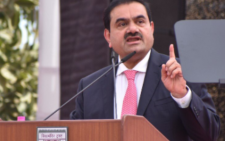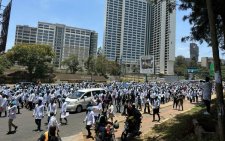Over 3,800 participants have registered to take part in developing a pact on plastic pollution during a seven-day meeting currently underway in Busan City in Korea.
The fifth session of the Inter-governmental Negotiating Committee (INC-5), which kicked off on Monday, will be concluding negotiations that will pave the way for writing a legally-binding document on plastic waste.
About 170 countries and over 600 observer organisations are represented in the meeting that approved proposals prepared and shared by INC chairman, Luis Vayas earlier this month as the basis of negotiations on plastic pollution.
Busan meeting, which has attracted the largest participation, is the last INC session that comes after four other rounds of negotiations.
INC was formed after the fifth session of the United Nations Environment Assembly (UNEA-5.2) in 2022 to develop an international legally-binding instrument to tackle plastic pollution. It works under the United Nations Environment Programme (UNEP). It was preceded by a series of ministerial meetings, regional consultations, and a conversation with Observers.
Historic moment
INC-1 was held in Punta del Este, Uruguay in November 2022, INC-2 in Paris, France in June 2023, INC-3, the only session held in Africa, happened in Nairobi in November 2023 while INC-4 was held in Ottawa in April this year.
Inger Andersen, UNEP Executive Director, said the world is in a historic moment to end the plastic pollution crisis in order to protect the environment and health.
“Our job in Busan this week is clear: agree to a treaty that puts us on the road to delivering a plastic pollution free future once and for all,” Andersen said.
Ambassador Luis Vayas Valdivieso, chair of the negotiations, said INC-5 is a critical session where the world will attain a comprehensive policy that offers sustainable solutions to reduce plastic.
“The voices of the world are clear: we need healthy meals free from micro-plastics; we need clean air, oceans, and forests; we need safe, non-toxic plastic products; we need innovation, circularity, and collaboration to replace harmful plastics,” Vayas said.
In his proposals that will set the agenda in the INC-5 session, Vayas called for elimination of some plastic products from the market and the avoidance of certain chemicals of concern in plastic products.
According to UNEP very little of the plastic that is discarded every day is recycled or incinerated in waste-to-energy facilities. Much of it ends up in landfills, where it may take up to 1,000 years to degrade, leaching potentially toxic substances into the soil and water.
Further an estimated eight million metric tons of plastic waste ranging from micro-plastics to large items like bottles and bags enters the ocean every year.
















